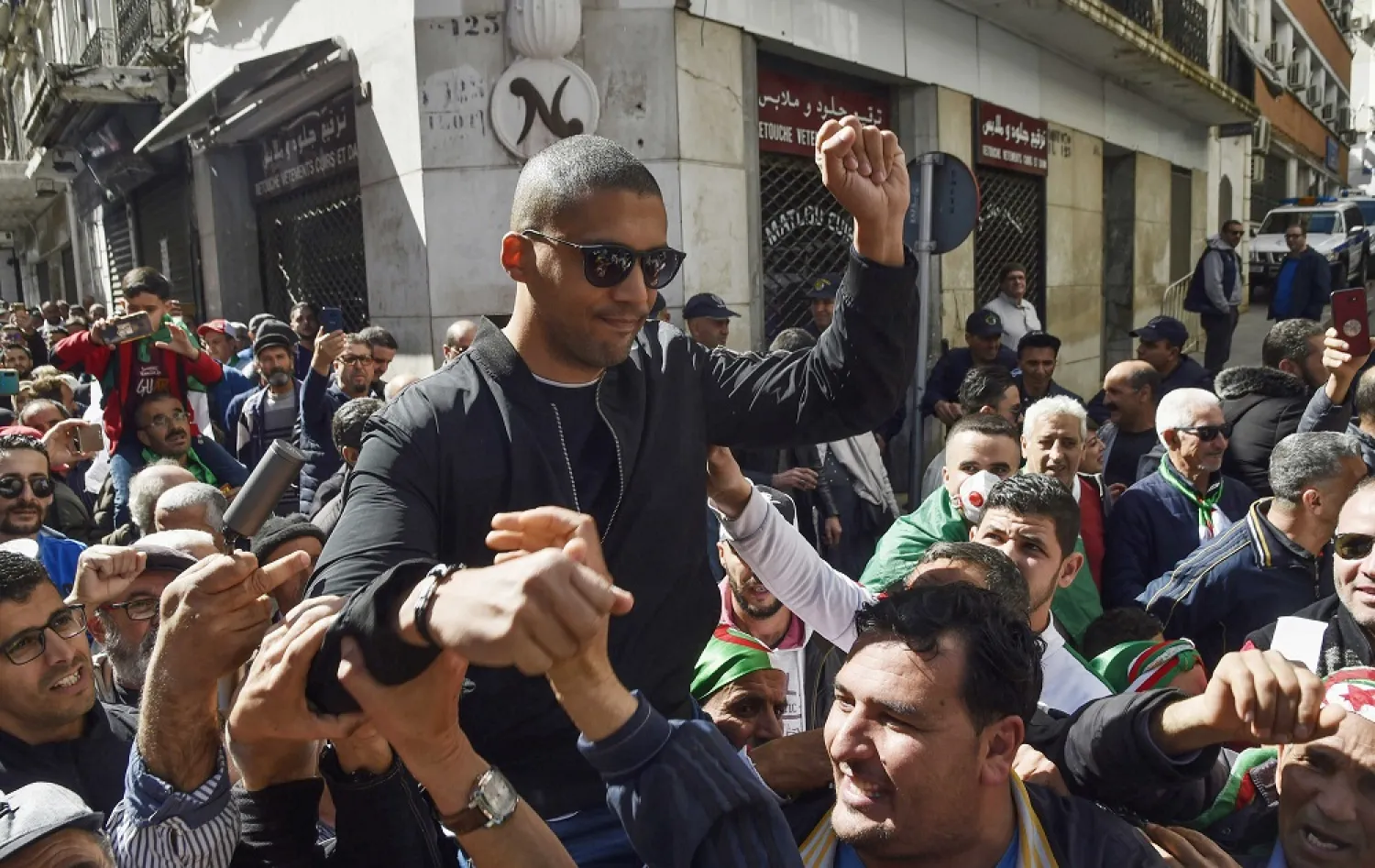Algerian courts have handed tough jail sentences to three opposition activists whose Facebook posts they deemed potentially damaging to the national interest, human rights groups said Wednesday.
Soheib Debaghi was sentenced to one year in prison on charges of encouraging an illegal gathering, insulting an official body and publishing potentially damaging material, the National Committee for the Release of Detainees (CNLD) announced on its Facebook page.
Human rights group Amnesty International said two other activists, Larbi Tahar and Boussif Mohamed Boudiaf, were handed 18-month prison sentences by a court in the western town of El Bayadh, also for posts on Facebook.
Weekly anti-government protests rocked Algeria for more than a year and only came to a halt due to the novel coronavirus outbreak, with the authorities banning marches -- although the opposition had already called a halt to its gatherings.
Activists and analysts fear Algerian authorities are using the pandemic as a pretext for crushing the Hirak protest movement.
According to the CNLD, around 50 people are currently detained over links to the movement.
Late last month, Amnesty urged the authorities to end "arbitrary prosecutions aimed at silencing Hirak activists and journalists" during the pandemic, and called for the release of detainees.
The rights group said that authorities were endangering detainees' health, "given the risks of a COVID-19 outbreak in prisons and places of detention".
EU concern
Seven European lawmakers are pressuring High Representative of EU’s Foreign Affairs and Security Policy, Josep Borrell, to help release Algerian journalist Khaled Drareni, according to sources close to the journalist.
The sources told Asharq al-Awsat that the letter was sent on May 15 and asked Borrell to urge Algerian authorities to acquit him. The lawmakers asked him to remind Algeria of its international and constitutional pledges to respect freedom and expression.
The Algerian government describes such foreign moves as “interference in a sovereign matter.”
Drareni, a correspondent for Reporters Without Borders (RSF) and French TV5, is accused of “unlicensed protesting” and “incitement against national unity.” He was arrested by security forces on March 7 when he was about to take pictures of anti-government demonstrators.
Earlier in May, President Abdelmadjid Tebboune accused the journalist, without naming him, of being an “informant” for the French embassy.
His remarks angered Drareni’s defense lawyers, saying they would influence judges to indict him while investigations were still ongoing. They urged Tebboune to respect the presumption of innocence before making such claims.
Meanwhile, the Court of Appeals in Adrar, south of Algiers, rejected a request to temporarily release activists, Yaser Ghadiri and Ahmed Sidi Moussa, who were placed in pre-trial detention earlier this month.
The prominent activists were arrested for “harming national unity” for their role in the Hirak movement in the Timimoun desert area.
Ghadiri and Moussa are the only two known activists from that region, who have rallied against poverty and lack of basic services in Timimoun.
All courts handling the cases of imprisoned activists rejected appeals for their temporary release on the occasion of the Eid al-Fitr holiday, which falls on the weekend.









